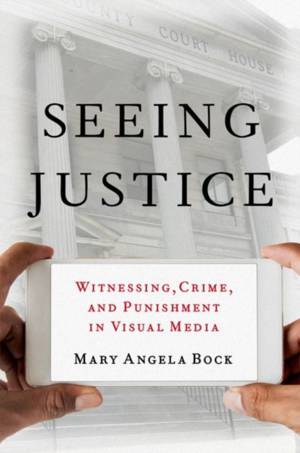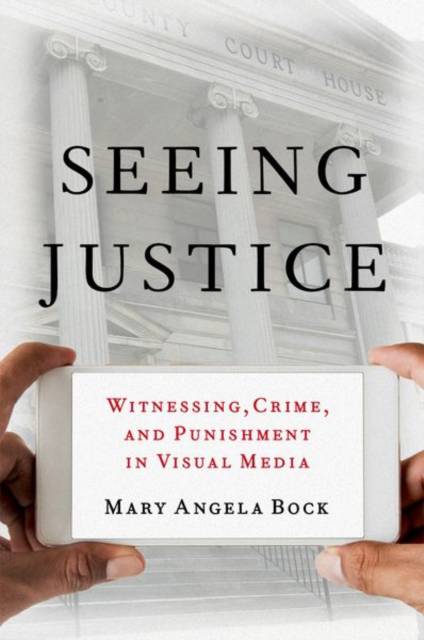
- Afhalen na 1 uur in een winkel met voorraad
- Gratis thuislevering in België vanaf € 30
- Ruim aanbod met 7 miljoen producten
- Afhalen na 1 uur in een winkel met voorraad
- Gratis thuislevering in België vanaf € 30
- Ruim aanbod met 7 miljoen producten
Zoeken
€ 97,95
+ 195 punten
Uitvoering
Omschrijving
A behind-the-scenes look at the struggles between visual journalists and officials over what the public sees--and therefore much of what the public knows--of the criminal justice system. In the contexts of crime, social justice, and the law, nothing in visual media is as it seems. In today's mediated social world, visual communication has shifted to a democratic sphere that has significantly changed the way we understand and use images as evidence. In Seeing Justice, Mary Angela
Bock examines the way criminal justice in the US is presented in visual media by focusing on the grounded practices of visual journalists in relationship with law enforcement. Drawing upon extended interviews, participant observation, contemporary court cases, and critical discourse analysis, Bock
provides a detailed examination of the way digitization is altering the relationships between media, consumers, and the criminal justice system. From tabloid coverage of the last public hanging in the US to Karen-shaming videos, from mug shots to perp walks, she focuses on the practical struggles
between journalists, police, and court officials to control the way images influence their resulting narratives. Revealing the way powerful interests shape what the public sees, Seeing Justice offers a model for understanding how images are used in news narrative.
Bock examines the way criminal justice in the US is presented in visual media by focusing on the grounded practices of visual journalists in relationship with law enforcement. Drawing upon extended interviews, participant observation, contemporary court cases, and critical discourse analysis, Bock
provides a detailed examination of the way digitization is altering the relationships between media, consumers, and the criminal justice system. From tabloid coverage of the last public hanging in the US to Karen-shaming videos, from mug shots to perp walks, she focuses on the practical struggles
between journalists, police, and court officials to control the way images influence their resulting narratives. Revealing the way powerful interests shape what the public sees, Seeing Justice offers a model for understanding how images are used in news narrative.
Specificaties
Betrokkenen
- Auteur(s):
- Uitgeverij:
Inhoud
- Aantal bladzijden:
- 274
- Taal:
- Engels
Eigenschappen
- Productcode (EAN):
- 9780190926977
- Verschijningsdatum:
- 15/07/2021
- Uitvoering:
- Hardcover
- Formaat:
- Genaaid
- Afmetingen:
- 241 mm x 159 mm
- Gewicht:
- 522 g

Alleen bij Standaard Boekhandel
+ 195 punten op je klantenkaart van Standaard Boekhandel
Beoordelingen
We publiceren alleen reviews die voldoen aan de voorwaarden voor reviews. Bekijk onze voorwaarden voor reviews.











